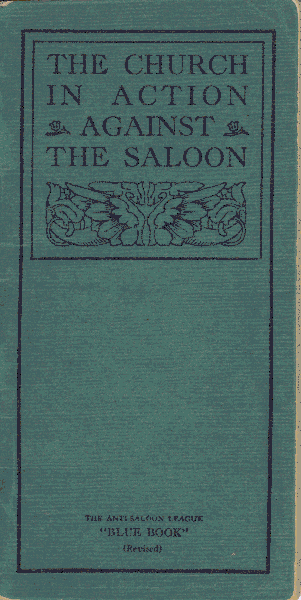Anti-Saloon League Is Formed
At Oberlin, Ohio on May 24, 1893 a new American temperance organization was formed. The organization was to work for unification of public anti-alcohol sentiment, enforcement of existing temperance laws, and enactment of further anti-alcohol legislation. A resolution was passed to elect the Rev. Howard Hyde Russell state superintendent of this new organization - the Ohio Anti-Saloon League.
The same year, a similar organization was founded in the nation's capital. These two organizations formed the nucleus for the National Anti-Saloon League which was officially founded on December 18, 1895 in Washington, D.C. The name of this national organization was later changed to Anti-Saloon League of America. Howard Hyde Russell was named as the first superintendent of the national league.
The Saloon Must Go
A leader of the League said of his organization, "It has not come...simply to build a little local sentiment or to secure the passage of a few laws, or yet to vote the saloons from a few hundred towns. These are mere incidents in its progress. It has come to solve the liquor problem." Its motto was "The saloon must go."
Churches Carry Message to the People
The leadership had definite ideas of how this was to be accomplished. They used local churches as the vehicles to carry their message to the people and solicit the funds to run the attack on the nation's saloons. They were interdenominational.
Ernest Cherrington in writing about the history of the League said that " the movement was dependent upon the church, first of all, for financial support. It was also dependent upon the church for the necessary influence and power to turn the tide..."
A Non-Partisan Approach
The League also was committed to working through the two party system with a nonpartisan approach. It chose to put its efforts into getting individual politicians elected who supported its cause. If both candidates for public office supported the anti-alcohol or dry cause the league would not get involved in the race. If one candidate were dry and the other wet the League would throw its power and influence into defeating the wet candidate. If both candidates were wet it would attempt to find its own dry candidate to run on one party ticket in the primary.
Initially the League chose to use local option as the tool to make the country dry rather than pushing for national prohibition. It would sway the country precinct by precinct.
About the League
Museum Hours
Monday-Saturday: 9am-6pm
Closed on Saturday: 1-2pm
Closed on Sunday









